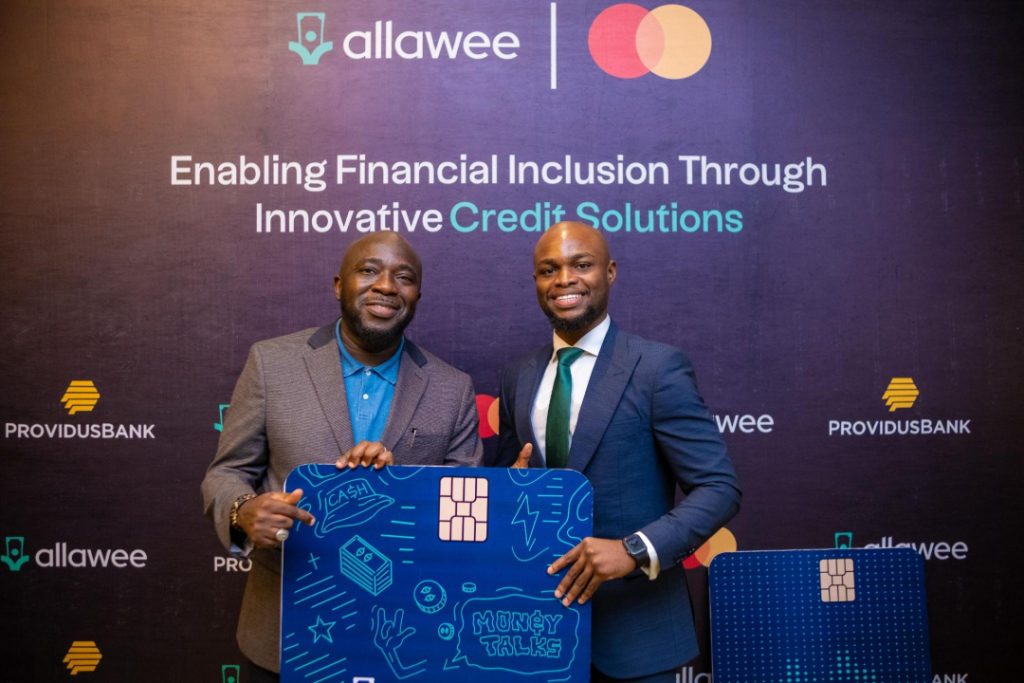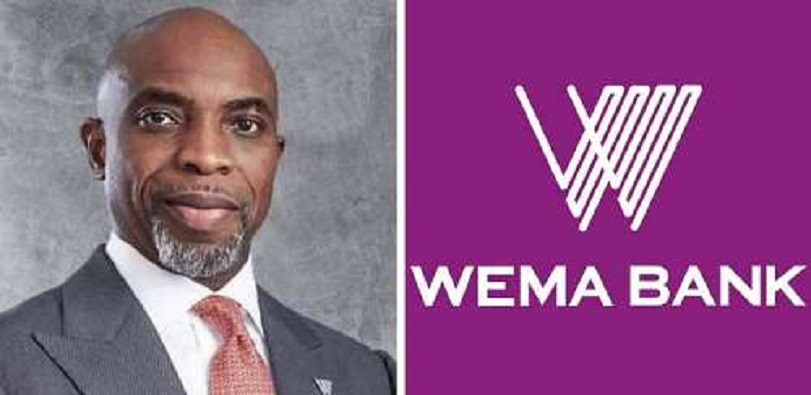Banking
H1 2017: Wema Bank Optimises Loan Book, Keeps NPL at 4.90%


By Dipo Olowookere
Wema Bank Plc, in its unaudited financial results for the 6 months ended June 30, 2017, said some achievements were recording during the period, including further optimising its loan book by focusing on recoveries and supporting transaction with good and steady cash flows.
This, it said, resulted in a 9.38% decline in the volume of Loans and Advances, while yield on assets improved.
Its Capital Adequacy Ratio (CAR) increased to 12.71% (H1’2017) from 11.06%, as at FY2016, whilst NPL remained below the 5% mark at 4.90% as at H1’2017.
Managing Director/Chief Executive Officer of the lender, Mr Segun Oloketuyi, while commenting on the results, stated that in the first half of the year, the bank operated in an uncertain and challenging domestic economic environment.
“While we recorded notable improvements in the second quarter of the year, especially around foreign currency management, the execution of fiscal policies and the continued tight monetary policy impacted on consumers’ disposable income and invariably on banking sector performance.
“Despite the relatively tough climate, Wema Bank recorded success on a number of financial and non-financial priorities. Specifically, Gross Earnings recorded stable growth, increasing by 25.17% from N24.26 billion (H1’2016) to N30.37 billion (H1’2017).
“This growth resulted from a 25.84% increase in interest income to N25.37 billion and a 21.92% rise in non-interest income where we continue to see impressive growth, led by income from our mobile and digital banking offerings.”
Mr Oloketuyi further stated that, “The impact of the growth in gross earnings was however muted by the higher cost of funds within the sector.”
“Despite this, we still maintained a decent interest margin while recording a 10% growth in Profit before Tax (PBT),” he added.
He disclosed that Wema Bank’s growth strategy – Project LEAP – revolves around the Bank’s Retail business and this was further strengthened by the May 2017 launch of ALAT, Nigeria’s first fully digital Bank.
ALAT is the first of its kind with its end-to-end digital offering and customer interaction.
The bank’s target is to onboard an average of 1,000 new customers per day and we are on track to achieve that. The Bank also continues to improve its customer acquisition through the launch of its Agency Banking initiative and the impressive performance of its USSD platform (*945#). Indeed with this 3-pronged strategy, Wema Bank is poised to be Nigeria’s leading Retail Bank.
“We have commenced the second half of the year with cautious optimism, especially around the implementation of the needed economic reforms and execution of the 2017 budget to ensure stimulation of economic growth.
“The expectation is that the country will exit recession in the 2018 financial year, but this will be dependent on a diligent execution of the reform programme,” he added.
Further discussions with Ademola Adebise, the Deputy Managing Director, revealed that for Wema Bank, the emphasis in the next six months is to build and consolidate on the gains within the Digital Banking space, where the Bank presently leads and to improve on customer acquisition and invariably cost of funds.
In sharing the Bank’s growth plan, the Deputy Managing Director revealed that the Bank has opened three branches in the North.
The Bank will expand further with two (2) other branches within the North Central Region and at least one in the East before the end of the year.
“We continue to improve on the brand perception of the Bank, both across physical channels and through social media engagement,” according to Adebise.
The Bank has renovated more than 70% of its branch network to make these service channels more contemporary both in look and feel, and in in the provision of infrastructure. This will continue as the economic climate improves.
On the Bank’s growth plan and capital raise, Tunde Mabawonku, the Chief Finance Officer stated that, “we are also closely watching interest rates in the money market and relevant government policies to determine the timing of the second tranche of our Debt Capital issue, to further boost our ability to grow our franchise. We have continued to engage both local and international fund providers and have improved on our capacity to do business especially within the Trade Finance space.
The Bank is rated by two rating agencies (Fitch & GCR) and our credit rating remains investment grade and a stable outlook.
Banking
First Bank Directors to Meet Amid Boardroom Crisis

By Aduragbemi Omiyale
On Thursday, January 30, 2025, the board of directors of FBN Holdings Plc will gathered for a meeting, a statement signed by the company secretary, Mr Adewale Arogundade, has disclosed.
This is coming amid the boardroom crisis rocking the financial institution over the leadership of the board headed by popular businessman, Mr Femi Otedola.
Mr Otedela, who sold his stake in Forte Oil, now known as Ardova Plc (AP), a few years ago to invest in the power generating sub-sector through Geregu Power Plc, acquired some shares in FBN Holdings.
Soon after his acquisition was announced, a leadership tussle erupted between him and Mr Tunde Hassan-Odukale, extending to Mr Oba Otudeko.
Some days ago, some shareholders of the company called for the removal of Mr Otedola as chairman of FBN Holdings through an Extra-Ordinary General Meeting (EGM).
The leadership crisis triggered the firm to assure its customers that its operations will not be affected by happenings in the boardroom.
“This matter does not in any way impact the operations of the company, and all the businesses within the Group continue to provide uninterrupted services to its customers.
“We assure our valued customers, shareholders, investors, other stakeholders and the general public that we are taking all necessary steps to protect the interests of the company and its subsidiaries.
“The Group’s performance continues to improve, resulting in a higher market capitalisation even as we work towards surpassing the regulatory minimum capital well ahead of the deadline,” parts of the statement read.
As the company makes efforts to manage the situation, members of the board will meet by the end of this month to “consider its unaudited accounts for the year ending December 31, 2024, on Thursday, January 30, 2025.”
In the notice signed by Mr Arogundade, FBN Holdings said its closed period, which commenced on Wednesday, January 1, 2025, “will continue until 24 hours after the company’s unaudited accounts and 2024 audited financial statements are filed via the issuer’s portal of the Nigerian Exchange (NGX) Limited, in line with Rule 17.18(a) Closed Period Rules, Rulebook of the Exchange, 2015 (as amended).”
A closed period is a timeframe when those who have privileged information about the financial statements of a firm within the organisation are prohibited from trading securities of the company at the exchange.
This is put in place to prevent them from having an undue advantage over shareholders not having any business dealings with the organisation.
Banking
Allawee, Mastercard Unveil Credit Card for Civil Servants, NYSC Members

By Adedapo Adesanya
A Nigerian digital lending fintech, Allawee, has collaborated with Mastercard to launch a credit-building card designed to enhance financial access for federal civil servants and National Youth Service Corps (NYSC) members.
This product, facilitated by a secure Mastercard platform and issued in collaboration with Providus Bank, and Remita, provides instant access to credit and financial flexibility to over 720,000 federal civil servants and NYSC members all through the Allawee app.
Despite Nigeria’s significant economic potential, over 70 per cent of bank account holders lack access to credit, according to the National Bureau of Statistics (NBS).
The Allawee credit card promises to address this gap, offering a solution that caters to the unique financial needs of Nigerians.
Nigeria as a market is dominated by debit and prepaid cards, so this initiative aims to promote responsible credit usage, combines seamless digital onboarding, user-friendly features, and responsible credit management tools in one platform.
Launched in December 2024, the Allawee credit card supports the Nigerian government’s objective of increasing credit availability to 50 per cent of working Nigerians by 2030. The card offers a secure and seamless way to access credit while helping users build a credit profile, aligning with Mastercard’s mission to drive financial inclusion.
“We are thrilled to collaborate with Allawee on this innovative credit solution, which aligns perfectly with Mastercard’s commitment to bring one billion people into the digital economy by 2025.
“The Allawee credit card provides instant access to credit while also empowering civil servants and NYSC members in Nigerian to build their creditworthiness, further advancing financial inclusion across the country,” said Mrs Folasade Femi-Lawal, Country Manager and Area Business Head for West Africa at Mastercard.
Users can download the Allawee credit card, apply for a loan, receive approval, and start transacting immediately. Once approved, the credit is disbursed directly onto a co-branded card, giving users full control over their funds. The card allows for flexible usage across POS terminals, ATMs, and online transactions, enabling greater financial freedom.
“We launched this card to help Nigerians gain access to instant, affordable credit while building their credit history. Whether it’s handling daily purchases or taking care of life’s emergencies, our customers now have an easy way to cover expenses.
“With Mastercard, we are giving them the convenience to spend their credit at millions of retail locations in Nigeria and around the world, both online and in-store,” said Mr Ikenna Enenwali, CEO of Allawee.
The Allawee credit card offers instant credit access through a fast, secure, and fully digital application process, with wide acceptance at Mastercard online and physical retail locations globally. Customers benefit from flexible repayment options, choosing their credit limits (up to ₦1,000,000) and repaying in installments over four months.
Banking
N200bn Debt: Telcos Get NCC Nod to Disconnect USSD Codes of Wema Bank, Jaiz Bank, Others

By Adedapo Adesanya
The Nigerian Communications Commission (NCC) has authorised telecommunications companies to disconnect the Unstructured Supplementary Service Data (USSD) codes assigned to nine financial institutions over a N200 billion debt.
The directive signed by NCC’s Director of Public Affairs, Mr Reuben Muoka, on Tuesday and obtained by Channels Television, noted that the affected banks are to pay the outstanding debts by January 27, 2025, or risk losing access to their USSD codes.
According to the NCC public notice, nine out of 18 financial institutions had not complied with regulatory directives.
The affected financial institutions include Fidelity Bank Plc, First City Monument Bank, Jaiz Bank Plc, Polaris Bank Limited, Sterling Bank Limited, United Bank for Africa Plc, Unity Bank Plc, Wema Bank Plc, and Zenith Bank Plc.
It said while other banks have cleared their debts, the total amount initially owed by the financial institutions was reported to exceed N200 billion.
According to the NCC, some of the invoices have remained unpaid since 2020, and has been a source of tussle for years.
“By the information made available to the commission as at close of business on Tuesday, 14th January 2025, of a total of 18 financial institutions, the nine institutions listed below have failed to comply significantly with the directives in the Second Joint Circular of the Central Bank of Nigeria and the commission dated December 20, 2024, for the settlement of outstanding invoices due to MNOS, some since 2020,” a part of the notice read.
The affected USSD codes include *770#, *919#, and *822#, among others, could be reassigned to other applicants if the debts remain unresolved.
The regulator noted that banks’ failure to comply with the CBN-NCC joint circular also means that they are unable to meet the good standing requirements for the renewal of the USSD codes assigned to them by the commission.
It added, “In fulfilment of its consumer protection mandate, the commission wishes to inform consumers that they may be unable to access the USSD platform of the affected financial institutions from January 27, 2025.”
The NCC emphasised that the financial institutions had been duly notified of the need for immediate compliance and warned that consumers may face service disruptions if the issues remain unresolved.
-

 Feature/OPED5 years ago
Feature/OPED5 years agoDavos was Different this year
-
Travel/Tourism8 years ago
Lagos Seals Western Lodge Hotel In Ikorodu
-

 Showbiz2 years ago
Showbiz2 years agoEstranged Lover Releases Videos of Empress Njamah Bathing
-

 Banking7 years ago
Banking7 years agoSort Codes of GTBank Branches in Nigeria
-

 Economy2 years ago
Economy2 years agoSubsidy Removal: CNG at N130 Per Litre Cheaper Than Petrol—IPMAN
-

 Banking2 years ago
Banking2 years agoFirst Bank Announces Planned Downtime
-

 Sports2 years ago
Sports2 years agoHighest Paid Nigerian Footballer – How Much Do Nigerian Footballers Earn
-

 Technology4 years ago
Technology4 years agoHow To Link Your MTN, Airtel, Glo, 9mobile Lines to NIN
























